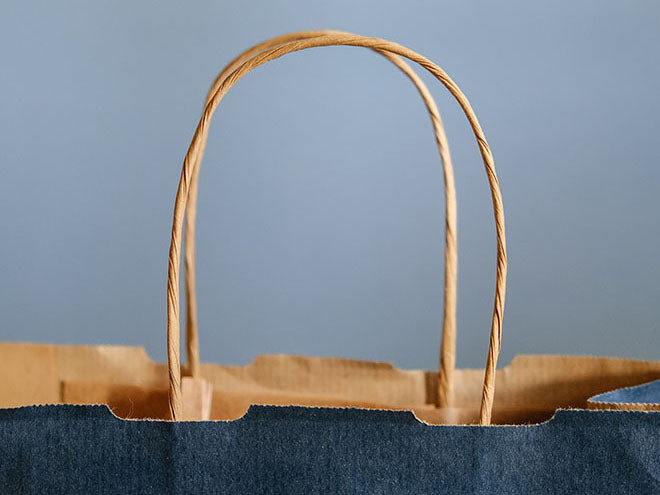The Hemp Farming Act of 2018 legalized the production of hemp. While states work to establish their own policies for regulating the industry, it has left a legislative gray area with little to no oversight of the production and manufacturing of hemp-derived products. That's why it is critical to be an informed consumer and do your homework before purchasing CBD or other hemp-derived products.
What's the difference between cannabis, hemp, and marijuana? And where does CBD fit in?
Cannabis is a plant genus that produces three species of flowering plants: Cannabis sativa, Cannabis indica, and Cannabis ruderalis. Cannabis sativa and Cannabis indica are used to produce marijuana.
Hemp is a type of Cannabis sativa that contains less than .3 percent THC, the psychoactive compound found in marijuana. Marijuana, on the other hand, typically contains 5 to 20 percent THC.
CBD, which is short for cannabidiol, is one of the at least 85 cannabinoids found in cannabis and the second only to THC when it comes to average volume.
Hemp Oil vs CBD Oil
First, make sure that you're buying hemp extract with naturally occurring CBD, and not hemp seed oil. Hemp seed oil is derived from the seeds of any type of cannabis plant and often used in cooking or cosmetics. Rich in Omega fats, it has many benefits — but it does not contain CBD. Many suppliers of hemp seed oil package their product in small amber bottles and hike the prices, giving the appearance of a product that contains CBD.
Take note, Amazon currently does not allow for the sale of CBD products, so if you're considering purchasing through their site, you can be sure the product is hemp seed oil and does not contain CBD.
Certificate of Analysis
The second thing to look for when shopping for a reputable CBD source is a certificate of analysis, or COA, ideally performed by a third-party lab. A COA is a lab report on the chemical make-up of a product. The COA reports on the cannabinoid, terpene, and contaminant profile of CBD products. COAs are used to verify that the contents of the product are matched to how it is advertised. Most reputable CBD manufacturers will make their COAs publicly available on their website or, at the very least, provide a copy of the report upon request. You can find COAs from our hemp extract supplier here.
Packaging and Storage
Heat, air, light, and time are the four factors that will contribute to the degradation of CBD. Store your CBD products in a cool, dark, dry place. Research shows that light exposure is the largest contributor to cannabinoid degradation.
When shopping for CBD oil, you can give yourself an immediate advantage by examining the packaging. Some CBD oils are sold in bottles that are designed to minimize light exposure, thereby reducing the risk of sunlight degradation. For example, blue or amber glass bottles provide excellent UV protection.
Full Spectrum vs Isolate
Full spectrum, sometimes also called “whole plant,” means the full plant extract is included. This version of CBD oil is minimally refined, leaving most of the cannabinoids and terpenes intact and in the oil.
CBD isolate products are generally labeled as being 99 percent or more pure CBD depending on the form they come in. As the name suggests, these products have been isolated down to just the CBD molecule. So which is better? Well, it depends.
Research seems to indicate that using a full spectrum product may result in what is called the "entourage effect," where all of the plant compounds work together to produce a stronger synergistic effect. CBD isolates allow users to easily get large amounts of CBD and know how much they’re getting. Isolates are also THC free, which is important if drug testing is a concern.
Go Organic
Finding a CBD brand made from organically grown hemp should be a top priority since hemp is a natural bioremediator. This means that the plant has the incredible ability to draw toxins and metals from the soil. While this is a huge plus if your goal is to clean up the soil, it is not desirable if you plan to make CBD from hemp grown in toxic soil. The plant will absorb any chemical fertilizers or pesticides used in cultivation. If your CBD comes from contaminated hemp, it’s very likely that some of those chemicals will wind up in the final product.
Read Labels - All of Them
Even reputable brands can create misleading labels. Some may advertise a product as "full spectrum" when it is actually a blend of CBD isolate and full spectrum hemp extract. Others may label a bottle as "3,000 mg," referring to the total quantity of hemp extract, when the amount of CBD is actually 750 mg. If you're buying an ingestible product, reading the nutritional label is your best bet.
While all of our products are for topical use only, we label our products with the total amount of CBD found in the package, which is the most common practice in the industry.
Try Different Brands
Finally, if a certain product doesn't work for you, try another brand. The human endocannabanoid system is only beginning to be understood. It appears that each person's endocannabanoid system is unique, so a product that works great for one person may not work at all for someone else.


Leave a comment: